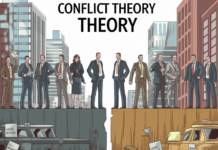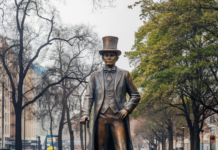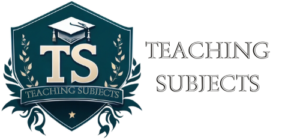Introduction
A liberal arts education is highly valued for its versatility and broad scope of knowledge. Graduates are equipped with critical thinking, effective communication, and problem-solving skills, essential in various professional fields. This adaptability allows them to navigate diverse career paths, from business and education to technology and the arts. However, new graduates often face concerns and uncertainties regarding job prospects and career stability. Addressing these worries involves highlighting the transferable skills they possess, which are highly sought after in the job market, and emphasizing the importance of networking and continual learning to enhance career opportunities.
Understanding Your Liberal Arts Degree
Graduates of liberal arts programs emerge with diverse skills and competencies that are highly valuable in the professional world. Among the most notable are critical thinking and analytical skills, which enable graduates to approach complex problems thoughtfully and devise innovative solutions. Effective written and verbal communication is another hallmark of a liberal arts education. This skill allows graduates to articulate ideas clearly and collaborate efficiently with others. Additionally, liberal arts students often excel in research and information synthesis, ensuring they can gather data from varied sources and produce well-rounded conclusions.
Beyond these specific skills, the adaptability instilled through a liberal arts education is crucial for thriving in an ever-changing job market. Given the rapid pace of technological advancements and evolving industry landscapes, the ability to learn continually and pivot when necessary is more important than ever. Embracing lifelong learning ensures graduates remain competitive and can take advantage of new opportunities. By maintaining a willingness to grow and adapt, liberal arts graduates can secure stable employment and carve out fulfilling and dynamic career paths.
Exploring Traditional Career Pathways

Teaching and Academia
Teaching and academia are traditional career pathways that many liberal arts graduates pursue. With their strong critical thinking and communication foundation, these graduates are well-equipped to inspire and educate the next generation. Opportunities range from primary and secondary education to post-secondary and adult education. Instructors with a liberal arts background bring a unique perspective to the classroom, fostering inclusive and holistic learning environments. Additionally, those who pursue advanced degrees can contribute to academic research and scholarship, furthering knowledge within their field of study.
Writing and Journalism
For liberal arts graduates with a flair for storytelling and a passion for uncovering truth, careers in writing and journalism present exciting opportunities. Whether crafting compelling articles, creating engaging content, or investigating and reporting on current events, these professionals leverage their refined communication skills to inform and captivate audiences. The media landscape continually evolves, incorporating traditional print, digital platforms, and multimedia formats, which demands adaptability and creativity. As a result, liberal arts graduates can find diverse roles in this dynamic industry, from print journalists and editors to digital content producers and freelance writers.
Public Service and Non-Profit Work
Public service and non-profit work are fulfilling career pathways for liberal arts graduates seeking to impact society positively. In roles such as policy analysts, community organizers, or program coordinators, these professionals use their analytical and communication skills to address complex social issues and advocate for change. Working in government agencies, non-profit organizations, or international NGOs, liberal arts graduates contribute to improving communities and the world. Their ability to understand diverse perspectives and synthesize information makes them invaluable in creating effective and sustainable solutions to pressing societal challenges.
Venturing into the Business World
Opportunities in Marketing, Advertising, and Public Relations
Liberal arts graduates often excel in marketing, advertising, and public relations due to their strong communication and analytical skills. In marketing, they can leverage their ability to understand and connect with diverse audiences, crafting strategic messages that resonate and drive engagement. Advertising roles similarly benefit from their creativity and persuasive communication, allowing them to develop impactful campaigns. Public relations positions also require the capacity to manage an organization’s public image and effectively communicate with stakeholders, a task well-suited to the critical thinking and media literacy honed during a liberal arts education.
Human Resources and Organizational Development
Human resources and organizational development roles are another promising avenue for liberal arts graduates. These positions involve managing employee relations, developing personnel policies, and promoting a healthy and productive workplace culture. Graduates with a liberal arts background bring strong interpersonal skills, empathy, and an understanding of diverse cultural perspectives, which are crucial for effective HR management. Additionally, their problem-solving abilities and aptitude for continuous learning ensure they can address organizational challenges and contribute to employees’ professional growth.
Sales and Customer Service Roles
Sales and customer service positions offer liberal arts graduates the chance to utilize their communication prowess and interpersonal skills to build relationships with clients and customers. Their ability to articulate value propositions and engage persuasively in sales roles can drive revenue and foster long-term business partnerships. Customer service roles require patience, active listening, and problem-solving capabilities to address inquiries and resolve issues, all of which are competencies developed through a liberal arts education. These positions provide valuable experience and open doors to future advancement within an organization.
Building a Career in Government and Policy

Local and Federal Government Roles
Liberal arts graduates can find rewarding careers within local and federal government roles, where their broad skill sets are highly valued. Positions such as legislative assistants, city planners, or public affairs specialists offer opportunities to engage directly with the community and influence public policy. These roles require strong analytical skills, effective communication, and a deep understanding of civic issues, making liberal arts graduates well-suited to contribute to formulating and implementing policies that affect citizens’ daily lives.
Policy Analysis and Research
Policy analysis and research careers involve evaluating and developing policies to address various societal issues. Liberal arts graduates bring critical thinking and rigorous research skills to these positions, enabling them to assess policy implications and craft evidence-based recommendations. Working for think tanks, research institutions, or governmental bodies, these professionals analyze data, produce reports, and provide insights that shape public policy. Their ability to synthesize information from diverse sources and present clear analyses makes them indispensable in policy-making.
Advocacy and Lobbying
For those interested in driving change through advocacy and lobbying, liberal arts graduates can leverage their persuasive communication skills and understanding of complex social dynamics. Roles in this sector involve representing organizations, advocating for specific causes, and influencing legislation. Working for advocacy groups, non-profits, or private firms, professionals in this field strive to educate lawmakers and the public, mobilize support, and shape policy decisions. Their ability to articulate compelling arguments and build coalitions is crucial in effecting meaningful policy changes.
Conclusion
While the career paths open to liberal arts graduates are diverse and multifaceted, the unique value you bring to the table cannot be overstated. Your ability to think critically, communicate effectively, and understand complex social dynamics equips you to excel in any field you choose. Whether you find your calling in business, public service, or policy-making, your liberal arts education is a powerful tool for making a difference. So, take this moment as an encouragement to start exploring your options, stay open-minded to the various possibilities, and trust the process of discovering where you can make the most significant impact. Remember, your journey is just beginning, and the skills you’ve honed will serve as your compass, guiding you toward a fulfilling and impactful career.















